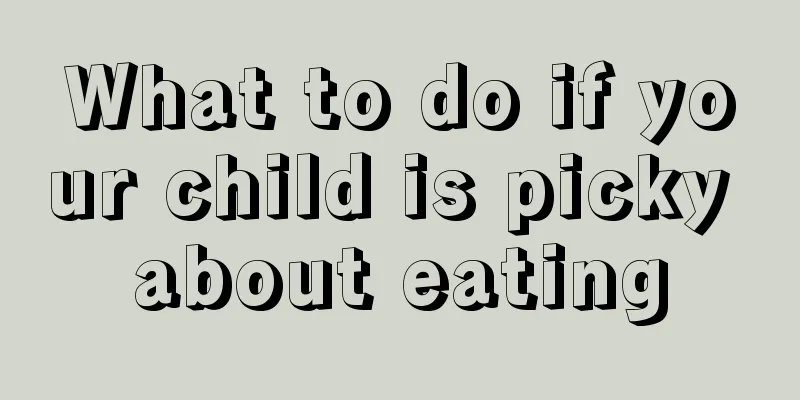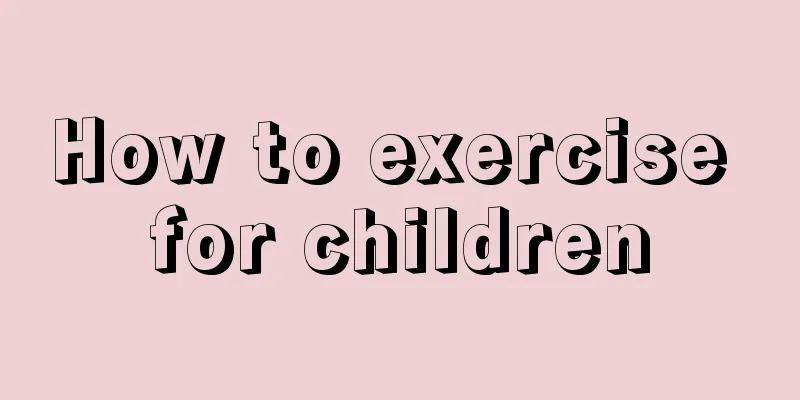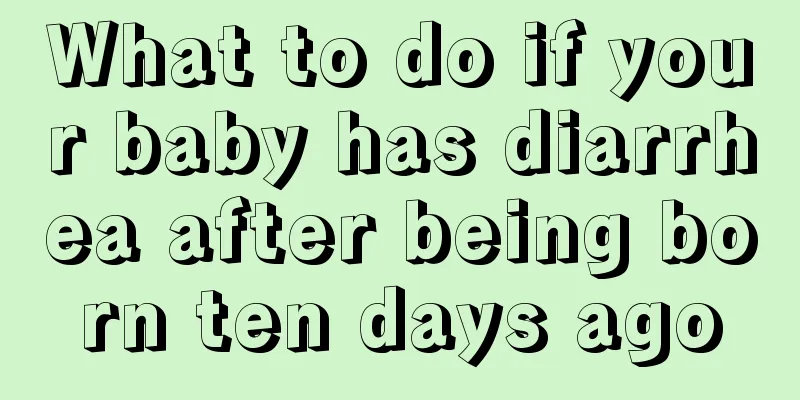The difference between choking and spitting up milk, prevention is the most important

|
Choking and spitting up are very common in infancy, especially in newborns. Choking is mostly caused by too much milk, and spitting up occurs after the baby finishes feeding. Mothers can prevent choking by having the correct breastfeeding posture and controlling the speed. 1. The difference between choking and spitting up milk Babies will cough when they choke on milk. Generally, they will choke if there is enough milk and the milk will spray out as soon as they suck. Spitting up milk happens after finishing feeding or after a while. If the milk comes out from the nose, it is likely that they choked and spit it out because the oral and nasal cavities are connected. Check carefully whether the baby's breathing is unobstructed and whether there is any milk curd in the baby's nose, so as not to affect the baby's breathing. 2. How to prevent your baby from choking on milk 1. Feed at the right time: do not feed the baby when he is crying or laughing; do not wait until the baby is very hungry to feed, as the baby may choke if eating too fast; do not force the baby to feed after he is full, as forced feeding may cause accidents. 2. Correct posture: Breastfed babies should lie diagonally in the mother's arms (upper body at 30-45 degrees), and should not be fed while lying on the bed. When bottle-feeding, the baby should not lie flat. Instead, he should lie in an inclined position with the bottom of the bottle higher than the nipple to prevent him from inhaling air. 3. Control the speed: When the mother secretes milk too quickly and the amount of milk is too much, use your fingers to gently press the areola to slow down the flow of milk. The hole of the nipple for artificial feeding should not be too large, and the milk should flow out in drops rather than in a line when turned upside down. 4. Pay attention to observation: The mother's breast should not block the baby's nostrils. The mother must observe the baby's facial expression while feeding. If milk overflows from the corners of the baby's mouth or the area around the mouth and nose turns blue, the mother should stop feeding immediately. Infants who have experienced choking or premature babies should be closely observed or asked to ask a doctor for feeding guidance. 5. Expel gas from the stomach: After feeding, hold the baby upright on your shoulders and pat the baby's back to help expel gas from the stomach. It is best to hear the baby burp before putting the baby on the bed. The head of the bed should be raised 15 degrees. The child should lie on the right side for 30 minutes and then lie flat. Do not let the child sleep on his stomach to avoid sudden infant death. |
<<: Why is the child's bottom red? Scientific care for diaper rash
>>: What foods should children eat less? Eat less of these 7 foods
Recommend
Massage method for diarrhea relief in children
If a child has severe diarrhea, then in this case...
What to do if a four-month-old baby has indigestion after eating milk powder
Newly born babies usually drink breast milk, beca...
What to do if the child is weak?
We all know that children are in a period of rapi...
What should I do if my 10-month-old baby has a fever?
When babies are around ten months old, they are m...
Baby's development at four and a half months
When a child is growing and developing, we must p...
What is the treatment for absence epilepsy in children?
If a person falls to the ground with convulsions ...
Seven-month-old baby suddenly cries while sleeping at night
When babies cannot speak yet, they express their ...
Reasons for baby girl's red bottom
Many baby girls have red buttocks. Red buttocks i...
What to do if you have a fever after polio vaccination
Many children will experience some adverse side e...
What are the symptoms of jaundice in newborns?
Newborn jaundice is also called neonatal jaundice...
The site for intramuscular injection in children should be selected
In the process of growing up, babies will inevita...
What to do if your 2-year-old baby's penis is red and swollen
The baby's body is not fully developed yet, a...
Height of a two-year-old boy
Parents will pay close attention to their childre...
What should I do if my three-year-old child has X-shaped legs?
X-shaped legs are a relatively common lower limb ...
What should I do if my child has tonsil polyp inflammation?
Tonsillitis is a disease that everyone knows. Cli...









